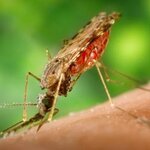
Gluten-free fads are all the rage and a preliminary result by reseachers at the University of Copenhagen want to see if there are health benefits for people who don't have celiac disease.
Their experiments on found that mouse mothers on a gluten-free diet led to pups less likely to develop type 1 diabetes. There's no reason to start paying 242% more for your food just yet.
More than 1% of the Danish population has type 1 diabetes, one of the highest incidence rates in the world. The hope is that the disease may be prevented through simple dietary changes, the researchers say.…




